|
“In the name of the Father, the Son and the Holy Spirit.” This is how I begin all of my prayers; and it comes from a long tradition in Christianity. As Catholics, we usually accompany these words by making the Sign of the Cross with our hand. Why is this so important to our faith and to me personally? To begin, I suggest revisiting and praying the Nicene Creed as it is proclaimed at every Catholic Mass. This is our profession of faith. The Holy Trinity – three persons in one – is a mystery we mere mortals can scarcely understand, but it explains our identity as children of God. We are taught from the Old Testament that God the Father is the Creator, and He sustains all of the world. In the New Testament we are instructed that God the Son is our Savior, Jesus Christ – both divine and human in nature and whose behavior we strive to model. At Pentecost, as told in the Acts of the Apostles in the New Testament, we are shown that the Holy Spirit is imparted to each of us as the presence of God in us who gives us wisdom and boldness to act as we are taught by Jesus. The unity of these three divine beings in one God is a profound gift I believe in complete faith, and it helps me understand who I am in His Kingdom. I am a child of the Father who loved me into being together with my earthly mom and dad, I am redeemed by the body and blood poured out by Jesus His Son for all my failings, and I am aided constantly by the Holy Spirit to live and profess the Christian life in joy and exuberance! I like to think of myself as being a flesh and bone human with supernatural assistance (as long as I cooperate with the will of God)! That is a pretty amazing disposition to live out of. We read in the Old Testament’s books of the prophets that God promised a Messiah to save His people, and then in Matthew 1:2-16 the genealogy of Jesus is recorded and spiritually comes to include each of us, who through our baptism become sons and daughters of God. This is an earthly and divine bond like no other in all of creation. There is so much more to us human beings than our earthly bodies and this temporary space we inhabit. We are walking, talking, living, breathing messengers of God the Almighty, commissioned to share love and mercy to every other living being around us. We are flesh and bone, but we are also spirit and intellect. When in right relationship with our Lord, we are the dwelling place for God to move and work in and through us. Understanding our identity and praying for guidance to live it out in what we do and say is imperative to being a member of the Kingdom of Heaven. This knowledge and the grace and virtues that flow from accepting our mission gives us the power to bring life and healing and hope and joy to a hurting, confused, and broken world. So, if you are ready to accept the mission, be prepared to be filled to overflowing with the Holy Spirit and be equipped with all that is necessary to be a present day apostle! Several years ago, one of our young sons made a simple but beautiful bookmark for my husband as a gift. It was brightly colored and had the words: WORK FOR GOD! down the middle. This summarizes exactly what we are called to do and continues to be a great reminder as it sits in my husband’s Bible. The Holy Trinity is the foundation of all our Christian beliefs and it gives me great comfort knowing who I come from and who I belong to for time and eternity, even when I do not fully comprehend it. We can sing from the rooftops: “Holy Father, Holy Son, Holy Spirit, three we name Thee; while in essence only one, undivided God we claim Thee; and adoring bend the knee, while we own the mystery” (Holy God, We Praise Thy Name by Ignace Franz). To learn more about living as a missionary disciple, please click here.
1 Comment
How are you navigating daily life these days? Are you scurrying around afraid of what is next or are you charging into each day with enthusiasm and hope? That sounds like the opening to an infomercial about to reveal some amazing product to enhance your life in some miraculous way, doesn’t it? But these are questions we need to ask ourselves as Christians; Jesus calls us to be exuberant about our mission in every moment because every moment counts. Life as we knew it before the Covid-19 pandemic has not returned, and all of us are still in some stage of the mess. But, as Easter people, we hold firmly to God’s promise that He is with us always, supplying grace and wisdom, no matter the circumstances of our present life. And this promise envelopes me personally with great comfort and allows me to begin each day with joy! The Easter message we celebrate again this year guides us through the steps of living in joy, filled with hope, even though our world seems dark and scary. Our daily scripture readings walk us through the Acts of the Apostles as the church was newly formed after the Resurrection and we learn once again of our mission as baptized priests, prophets, and kings in the new covenant Jesus established. Thirty minutes of ingesting current news makes us aware of the many divisions within our nation and on a global scale. There is very little uplifting or good news being reported. Our world is filled with turmoil and unrest, and the doom and gloom can seem overwhelming. But, let’s flash back to over 2000 years ago on a stormy Friday afternoon when Jesus was tortured and suffered an agonizing death by crucifixion and the earth shook. This horrifying event in the news of the time seemed bleak to the early Christians, yet in actuality, this event was the defining moment for all of humanity. It was and continues to be God’s greatest gift to us. In the dismal hours on Good Friday centuries ago, Jesus our Savior exhibited the ultimate “cancel culture” by completely canceling our sins and opening the path for us to enter the glory of heaven! In recent years, we are more familiar with a different type of “cancel culture” – one that is not merciful and has a negative message. Yet, if we focus on walking closely with Jesus, we can experience the freedom that comes from that horrific sacrifice on the Cross at Calvary. Our lives are forever redeemed, and the love and mercy of God allows us to live amidst times of great trial without fear and even be filled with joy. We have been commissioned for the work of heaven and as we live in this Easter season, we have the knowledge of Jesus’ teachings, His examples of how to love and act toward others, and His living Spirit within us to keep us steadfast in being joyful. We can smile when the world is unkind, courageously proclaiming the Good News in a culture that will scoff and try to shame and shun us because, as St. Paul says in Col. 2:13-14, “And you who were dead in trespasses and the uncircumcision of your flesh, God made alive together with Him, having forgiven all our trespasses, having canceled the bond which stood against us…. nailing it to the cross.” This is truly the “divine cancel culture” that heals us and rescues us from sin and death. The secular “cancel culture” reviles people who disagree, seeks to destroy those it determines unworthy, and ascribes to inflicting recriminations and paybacks. The “divine cancel culture” Jesus instituted from that Cross on Calvary expects us to always forgive and cancel the wrongs others do to us, as He taught us: “forgive us our trespasses as we forgive those who trespass against us” (Matt. 6:12). We can confidently choose to walk in the footsteps of our Lord and Savior and practice the principles of faith, hope, and love – love being the greatest of these. We walk together, you and I, as Easter people, united in the mission passed to us personally by Jesus Himself. Even though chaos may be swirling about us, He is who transforms our lives in a miraculous way so that we can live each day with exuberant joy! Help us Lord to be your messengers of love and mercy to the lost, the despairing, the cruel, the innocent and the vulnerable— to draw all your people to your glorious kingdom forever! Amen, Alleluia, Glory! It seems that each day we check the news to discover that another politician, producer, actor, or celebrity figure is being exposed for scandal or abuse. Many of those who have for years been hailed as the main influencers of public opinion, policy, and taste have in a stunningly short span of time lost support or credibility. Many of those who were on top of the world have been, we could say, deflated and dethroned. I have been pondering this lately as the Church prepares to celebrate the Solemnity of the Ascension of the Lord. Each Sunday in the Nicene Creed, we profess Christ’s ascension, “He ascended into heaven and is seated at the right hand of the Father.” The ascension is recounted at the beginning of the Acts of the Apostles (Acts 1:6-12). Theologically, we do not envision Jesus ascending like a balloon into the sky, but a king ascending a throne. The Feast of the Ascension celebrates the exaltation and enthronement of Jesus as King and Messiah at the right hand of God the Father in heaven. As many of us may be scientifically literate and democratically-minded citizens of the twenty-first century, we may think all this talk of thrones and kings and heaven may seem like it belongs to a world that has long passed away. But if our recent headlines have proven anything, what has not passed away is the perennial pursuit of power and our tendency to underestimate our willingness to use it in potentially harmful and self-aggrandizing ways. Power in and of itself is not an evil thing, and watching people fall publicly is not a cause for celebration. I think instead the present reality invites us to pause and reflect on—in light of God’s reality—the pursuit and exercise of power both in society and in our own lives. In truth, power is not something that belongs only to the powerful. Power exists across any human relationship: husband and wife, parent and child, teacher and student, boss and employee, and the list is endless. We are influenced vertically by our superiors and horizontally by our peers. Ideally, we work together to achieve the common good and common goals by sharing and exercising power in the right doses and ways. But I think if we’re honest, we all have our own way of being out of balance, tipping the scales. So, what does this all have to do with Jesus, who we call the All-Powerful One? As exalted King and Messiah, Jesus overthrows the love of power with the power of love. The Ascension is not a power grab that Jesus will use to control people and outcomes. Rather, we hear Jesus tell the disciples that once he has taken his seat on God’s throne, “you will receive power when the holy Spirit comes upon you, and you will be my witnesses in Jerusalem, throughout Judea and Samaria, and to the ends of the earth” (Acts 1:8). As disciples, we are not separated from Christ by a glass ceiling. Yet as disciples, we have to be careful where and how we exercise this power given to us in the name of Jesus. One of the images in Scripture of the Holy Spirit is fire. It is a great metaphor for power. Our stewardship of God’s power can bring light and warmth, yet it can also burn if used irresponsibly. I suspect today that much of what compromises our evangelizing message of Jesus’s kingship stems from the ways Christians have abused earthly power in the name of God. The Gospel and St. Paul preach a radically different alternative: the conviction that our human exercise of power more fully manifests Christ when it is surrendered than when it is wielded. So, I propose instead: What happens when we dare to profess Jesus enthroned and exalted, to receive the power of his Holy Spirit, and then lay it down in the service of the Gospel? Question for Reflection: How is Christ’s example of kingship and power different from what we see in the world? For the average modern-day Catholic, one’s familiarity with St. Barnabas probably extends as far as knowing that he was a companion of St. Paul during Paul’s early missionary work. But when I delved deeper into the Acts of the Apostles to learn more about Barnabas, I was surprised to see just how influential he was in the early days of the Church.
He first appears in the Acts of the Apostles 4:36: “Joseph, also named by the apostles Barnabas” sells a piece of his property and donates the money for the Apostles to use. He next appears in Chapter 9, when he takes charge of the newly-converted Paul and introduces him to the twelve Apostles, and later, he brings Paul into the missionary work for the growing, Jewish-and-Gentile-based Christian community at Antioch (in modern-day Turkey). Chapters 13 and 14 could be appropriately nicknamed “The Adventures of Paul & Barnabas,” for they include: an encounter with a false prophet (Acts 13:6-12), having their teachings embraced by Gentiles and just as thoroughly rejected by Jews (Acts 13:44-52), one near-stoning and one nearly-fatal stoning (Acts 14:5-6 and 14:19-20, respectively), and performing a miracle only to be mistaken for incarnations of the Greek gods Zeus and Hermes (Acts 14:8-14). And yet, the Holy Spirit compelled them onward! The next chapters recount more of Sts. Paul and Barnabas’s evangelizing work together and then focus on St. Paul after he and Barnabas went separate ways. Personally, I had never known that St. Barnabas—whom I had often envisioned as a sort of sidekick to St. Paul’s evangelizing heroics during his early years as a missionary—was actually the man indirectly responsible for Paul’s later renown. It can be difficult to believe that someone has truly changed, and even more difficult to advocate publicly for that person before he has had a chance to ‘prove himself’—and yet that is what Barnabas did. Would Paul ever have been accepted as a ‘true’ Christian if the well-regarded Barnabas had not been there to acknowledge Paul publicly and to put him in touch with the Apostles? How long might it have taken Paul to reach the path of the missionary if Barnabas had not sought him out specifically to assist the efforts in Antioch? In our modern, post-Christian society, there are many opportunities for us to be the Barnabas to someone else’s Paul. Perhaps it might mean asking for help from someone with a task that could ignite their zeal for the Lord and nurture their God-given talents. Perhaps we can see the potential for someone else’s faith to deepen and for the great things they could accomplish. Or perhaps the opportunities we encounter are chances to be a witness to the truth—even if that witness brings persecution, falls on deaf ears, or we must move on to other places, as Paul and Barnabas did. As we commemorate the feast of St. Barnabas, let us ask for his intercession in revealing to us how we can most effectively share the Gospel today and invite others into a life of meaningful discipleship. Question for Reflection: Has anyone ever advocated for you or have you ever been an advocate on someone’s behalf? What was this experience like? experience like? The Feast of Pentecost occurs on the seventh Sunday following Easter Sunday. On this day, we commemorate the occasion of the Holy Spirit descending upon the disciples of Jesus, marking them each with “tongues of flame,” and allowing them to speak and proclaim in different tongues, or languages. To describe this moment in early Church history as a “tipping point” would be an understatement. Pentecost signifies a unique outpouring of God’s love and spirit upon those first men and women to follow Jesus Christ, empowering them to expand and carry His message of salvation to all nations. Today’s first reading from the Acts of the Apostles depicts this anointing of the Holy Spirit, in such a way that has inspired numerous works of music, literature, and art – including some artwork appearing here at the Catholic Apostolate Center! As I reflect on the mystery of Pentecost, and ponder what it could mean for us in this current day, I am drawn to these particular passages from today’s Scriptures: Reading 1: ACTS 2:1-11 “And suddenly there came from the sky a noise like a strong driving wind, and it filled the entire house in which they were. Then there appeared to them tongues as of fire, which parted and came to rest on each one of them.” Have you ever been in a room that was particularly quiet – and then suddenly, for no discernable reason, your senses sharpened dramatically? When I read today about the “strong driving wind” filling the entire house where the disciples were, this sort of heightened awareness is what I imagine the disciples could have felt right before the Spirit arrived and the tongues of flame appeared. Especially in this season following the Paschal mystery, I view this reading as an invitation to seek and contemplate God in the quiet places with an open heart to what may come. Reading 2: 1 COR 12:3B-7, 12-13 “There are different kinds of spiritual gifts but the same Spirit; there are different forms of service but the same Lord; there are different workings but the same God who produces all of them in everyone.” At Pentecost, the flames parted and “came to rest on each one of them [disciples].” I find this so encouraging! This past Lent, we read about Moses and the burning bush, from which God calls out, “Moses! Moses! ...Do not come near! Remove your sandals from your feet, for the place where you stand is holy ground.” Now, at the historical moment of Pentecost, fire is actually sent and bestowed upon each follower. God is still a mystery, as is the Holy Spirit – but a mystery that comes to us and rests upon us. We should not be afraid to be humble like Moses (removing our sandals before God) while at the same time accepting with joy and utilizing with courage the gifts the Spirit may bestow to each of us, according to our unique natures. Gospel: JN 14:15-16, 23B-26 "I have told you this while I am with you. The Advocate, the Holy Spirit whom the Father will send in my name, will teach you everything and remind you of all that I told you." This age of instant communication is hopeful and perplexing all at once. On the one hand, technological advances have made worldwide communication easier than ever – truly a remarkable gift! On the other hand, we have all experienced how shorthand communication styles can misconstrue intended messages and cause confusion or even lasting harm. To me, the promise of Pentecost speaks directly to these challenges. Through the Holy Spirit, we may learn to genuinely and faithfully connect with one another despite all of our perceived differences. There is a definitive continuation of the Easter message contained in today’s Gospel when we are told of “The Advocate… who the Father will send in my name.” We are not alone, even though we live long after the age of Christ. Perhaps this is what is meant when He once said, “I am with you always, until the end of the age” or “Where two or three are gathered together in my name, there am I in the midst of them.” I believe that the Holy Spirit does blow through the rooms of our houses and within our hearts, even today. And while we may not see with human eyes the flames and the dove from this narrative, I believe that we are all surrounded by people who possess the flame within and have allowed The Advocate to work through them – helping them to become little advocates, little flames, and little doves, living among us, bringing peace. One of the topics the 2018 Synod on Young People, the Faith, and Vocational Discernment sought to address was the role of mentorship in the development of the spiritual life. In a time when so many of us seek to know more about the faith and struggle to find faithful examples in the world, the topic of mentorship is extraordinarily important in nourishing young Christians in the faith. The Instrumentum Laboris for the Synod, published in March, brings up two major points that address the roles a mentor has today. The first, and most talked about, is that of accompaniment. The other is education, which is especially important in a time when we live in an increasingly secular culture. These two facets of mentorship are different and cannot always be fulfilled by one person. For this reason, the contribution of the community of faith is incredibly important. In my life, faith education came from many sources, but none was more important than my Confirmation teacher who was also my youth basketball coach and the father of one of my best friends. Throughout my life, my mentor helped me to learn and grow more in my faith by inviting me to events and men’s conferences. In my Confirmation classes, he showed the beauty of the Faith and helped me understand the truth that flows from the Church’s teachings. Like many young people, I didn’t fully take advantage of a great mentor when I had the chance. But his presence in my life continues today, and his example is a continual witness of what it means to be a faithful Christian. When we look at the life of a saint, we often see the impact other peers, mentors, or saints had in their life. St. Augustine, for example, had two great saintly mentors: St. Monica (his mother) and St. Ambrose. St. Monica, who prayed tirelessly for the conversion of her son, showed the young Augustine an example of the Christian faith in a lived way. Augustine only fully appreciated this until after his conversion. St. Ambrose provided Augustine—who was struggling with his dualist view of the universe—with the truths found in the Christian faith, which strengthened Augustine and propelled him to ultimately become a Doctor of the Church. In my life, my friends and peers have been incredible examples of accompaniment. An intimate and baseline knowledge about me makes it so much easier for a friend or peer to understand where I am in life and how to proceed. Peer mentorship, in my experience, is only possible because of the tireless effort that my parents, teachers, ministers etc. have put into nurturing me in understanding and action in the Faith. Without those people I wouldn’t have had the faithful and honest advice that is always so valuable to making me a better Catholic. Just as Jesus sent out his Apostles two by two, we share in the Apostles’ mission to evangelize the world and we must rely on those who share our mission for their support in life. Saints are often friends with other saints. Two men who followed in the footsteps of the Apostles in fraternity and holiness were St. Ignatius of Loyola and St. Francis Xavier. In the early days of the Jesuit Order, these saints relied on one another for the strength to persevere in promoting the mission of the Society of Jesus. Roommates at the University of Paris, their friendship was centered around Jesus and informed by their studies in Theology. The union of intimate friendship and a well-formed Christian mind creates incredible fruits, which are seen clearly in the success of the Jesuit Order in the missionary work in Europe and around the world. A revitalized sense of mentorship among Christians is so necessary in a time when the world directs us away from God and into itself. The responsibility for educating and accompanying young people falls on old and young alike. So many young people search for true meaning. It is our responsibility as Christians to take their hand and walk them closer to faith by showing them the truth in the Church’s teachings. The 2018 Synod is so important because it refocuses on the universal call to holiness. We are called to invite young people into the fullness of the Faith through mentorship, educating them in the fullness of her truth and accompanying them through their struggles—always striving to bring each other closer to Christ along the way. Questions for Reflection: Do you have any examples of mentorship in your own life? How can you accompany and educate those around you in the example of Christ? For more resources on the Synod on Young People, the Faith, and Vocational Discernment, please click here. “It’s 11:11… make a wish!” Have you heard of that phrase before? I roll my eyes every time someone eagerly pauses in that moment, thinking that whatever they wish for will magically appear. Though superstitions like this detract from actual prayer, the idea of praying a daily devotion has a long history in the Church. Prayers like the Angelus, a Marian devotion that commemorates the Incarnation, have been around since at least the Middle Ages. Often prayed at noon, the devotional provides the faithful with an opportunity to re-focus and recommit their days to Christ.
Marian devotions in particular can help us grow closer to Christ because Christ himself dedicated Mary to us after his death. When Jesus said, “Woman, behold your son. Son, behold your Mother,” he was providing Mary as an intercessor for us. After Jesus’ death, the Acts of the Apostles records her as being present when the disciples gathered at Jesus’ Ascension and then later in the Upper Room during the Descent of the Holy Spirit. Because of Mary’s continual intercession for the followers of her Son and because of her role serving with the Apostles on earth, she has historically been known as the Queen of Apostles. As tradition goes, it is Mary who bolstered the Apostles in moments of discouragement and fear after the death and Resurrection of Christ. Prayers to Our Blessed Mother never go unanswered. As a personal devotion to her, I offer up a Hail Mary for my vocation every time I see an 11 on the clock. I like to pray when I see the number in order to turn the superstitious ‘11:11 practice’ into something for the glory of God; you could pray when you first wake up, or at noon like those who pray the Angelus, or during your commute to work or school. Daily devotions are flexible! The important part is to make sure that you are checking in with our Heavenly Father every day. In particular, praying with Mary encourages us to adopt as our own her obedience and love for the Father. And of course, Mary is never outdone in generosity, and her intercession to Jesus is the most powerful of all. I encourage you to begin a daily devotion of your own. It can be for your vocation, for a personal trial, for someone else – for whatever is on your heart that day. My prayer for my vocation was inspired by a friend who made a daily offering of prayer for her future husband and is now married and has four beautiful babies. She told me her life wasn’t always pointed straight to God’s will, and how she grew up neglecting her Catholic faith. As she grew older, she knew that her soul was yearning for something to grasp, to hold onto, to fill the void in her heart. She decided to go to adoration, and was inspired through prayer to begin a daily devotion to Christ through Mary. That devotion she made fifteen years ago to Our Mother changed her heart and her life. I pray that you also will be inspired to take up a daily devotion to Our Mother, who so graciously hears our intercessions and carries them to her son. As I pray each day this devotion, I will pray for you, and this journey to Heaven that we are taking together. Question for Reflection: What do my daily devotions look like? What is an easy moment in the day that I can take some time to pray to Our Mother for guidance and intercession? Kathleen O’Reilly is a senior at Saint Vincent College in Latrobe, Pennsylvania. Being comfortable with dependence is a struggle for me. I absolutely hate to be a burden on anyone. In fact, my family constantly reminds me that it’s OK to ask for assistance and guidance. Several years ago in college, for example, I began to have car troubles that created a need for help with transportation. My parents reminded me that my friends would be there for me to lean on, reassuring me that they would in fact be glad to help. I was pleasantly surprised when each friend I asked for help gave a resounding, “Of course!” Self-reliance seems to be a virtue valued by society because we are taught that it is better to give to others than to take. But when taken too far, the negatives of this quality actually erode our trust and relationships with other people, as well as our desire for God. In the Acts of the Apostles, we learn how the members of the early church relied upon one another and became stronger because of this support. We are humbled when we rely on others and on God, but we are also brought closer together as a result. Recently, I read about Jabez’s prayer in the Bible. Jabez calls out to God asking, “Oh, that you may truly bless me and extend my boundaries! May your hand be with me and make me free of misfortune, without pain!” Jabez turns to God in prayer, showing strength in dependence on God. Dependence is synonymous with prayer. It requires humility, an acknowledgement that we need God to help us grow and become more like him. 1 Peter 5:7 says, “Cast all your worries upon him because he cares for you.” God wants us to ask for his blessings in prayer, to strive for big goals and dreams, not settle for mediocrity. But in all we do, we are called to glorify the Father, just as Christ did on earth. Although not every one of our prayers is answered in the way we ask, God does hear each one and answers them in some way. Sometimes, an answer may come in the form of hardship or suffering. Conversely, an answer may come in the form of silence. Other times, an answer may come as blessings, an “extension of boundaries.” Regardless of the outcome of our prayer, God invites us to depend on him in the midst of any situation we may find ourselves in – whether we are in a position of strength or weakness. With time, experience, and prayer, God continues to show me how to reach out to others as resources and guides. Over the summer, I began to pray something like Jabez’s prayer. I had asked God for ways to help me become more connected to my parish, and he responded by having a pastoral associate invite me to help form a young adult ministry in the parish. I reached out to other young adult ministry leaders who offered their suggestions and advice, and they put me in contact with other diocesan leaders who were wonderful resources as well. Several friends also offered their support for the ministry and have helped to form a core planning team. Since the ministry had its first event in September, I encounter someone new looking to join or share the ministry with someone else several times a week. We’ve even had other parish ministries ask how the young adults can help be part of their evangelization missions. Our territory is enlarging, as Jabez would say. God, and other people, want to help us and be a part of our lives – we just have to ask. Questions for Reflection: Can you think of a time when you had to rely on the generosity or goodwill of others? How did it make you feel? I have always had a special admiration for St. Jude. Growing up, my home parish was the Church of St. Jude. I can still remember my mom telling me to pray to the saint whenever I felt that I was facing an impossible task. Legend says that since his name was so close to that of Judas, many people did not pray to him, for fear of confusing the two. To show his thanks to people who did remember him, St. Jude was willing to be extra fervent in bringing the faithful’s requests to the Lord. In John’s Gospel, towards the end of the Last Supper, Christ observes that soon he will no longer be with his disciples, but that he will soon reveal himself. Jude asks Jesus, “Master, [then] what happened that you will reveal yourself to us and not to the world?” (John 14:22) Our Lord responded, “Whoever loves me will keep my word, and my Father will love him, and we will come to him and make our dwelling with him” (John 14:23). He is telling his disciple, and us, that whoever holds God’s teachings in his or her heart and acts accordingly is filled with the Spirit of the Lord. The Feast of Sts. Simon and Jude remind us all to be God’s dwelling place. While we do not know much about the lives of either saint, tradition tells us that Simon was called the Zealot in the gospels and Acts (Lk 6:15; Acts 1:13). There is some debate to whether this means he was an ardent disciple of Jesus or that he was a former member of the Zealot sect that advocated for the violent overthrow of the Roman occupation. If the latter is to be believed, then Simon truly demonstrates that no one is beyond becoming a dwelling place of the Lord. The Zealots were known to use violence to advocate noncompliance with the Roman authorities. Nevertheless, tradition and legend hold that Simon helped to spread the Good News, peacefully, through much of the Middle East. It was that conversion of heart that truly made Simon a dwelling place of the Lord. Legend tells us that both saints suffered martyrdom while spreading the faith in Syria. Tradition holds that Simon was either crucified or sawed in half while Jude was clubbed to death or beheaded by an axe. Yet, in the face of adversity and hostility, they continued to profess the faith that had been revealed to them until the very end. So, the question remains: How do we become God’s dwelling place? The answer is simple – follow what Jesus told St. Jude at the Last Supper: love the Lord and keep His Word. When we accept and follow the Word of God, He truly and fully enters into our lives. By keeping His word on our minds and in our hearts, we make ourselves His dwelling place. Sts. Simon and Jude truly became dwelling places of God. What happens when God resides with someone? He or she becomes so full of God’s love that it must be spread. That is what happened to Sts. Simon and Jude and that is what is possible for all of us. By following their example, we, too, can be an outpouring of God’s love to others and help build up His kingdom. Victor David is a collaborator with the Catholic Apostolate Center and a staff member at The Catholic University of America in Washington, DC. -- The St. Jude Shrine is located in the heart of Baltimore, Maryland, and has been operated and staffed by the Pallottine Fathers and Brothers for over 80 years. The Archbishop of Baltimore entrusted the Shrine to the Pallottines in 1917. Regular Novena Services were established around the outset of World War II, when devotion to St. Jude reached remarkable proportions. Today, St. Jude Shrine is the Nationwide Center of St. Jude Devotions. Like the St. Jude Shrine on Facebook.
The St. Jude Shrine is a ministry of the Society of the Catholic Apostolate - Immaculate Conception Province. Learn more by visiting http://www.sacapostles.org/our-ministries.html. Today is Ascension Thursday.
The Ascension is traditionally celebrated on the Thursday of the sixth week of Easter, but in many dioceses around the US the celebration of the Ascension is transferred to the following Sunday. Below is a reflection given by Pope Francis during a General Audience in St. Peter’s Square on April 17, 2013. Dear Brothers and Sisters, Good Morning! In the Creed we say that Jesus “ascended into heaven and is seated at the right hand of the Father”. The Jesus’ earthly life culminated with the Ascension, when he passed from this world to the Father and was raised to sit on his right. What does this event mean? How does it affect our life? What does contemplating Jesus seated at the right hand of the Father mean? Let us permit the Evangelist Luke to guide us in this. Let us start from the moment when Jesus decided to make his last pilgrimage to Jerusalem. St Luke notes: “When the days drew near for him to be received up, he set his face to go to Jerusalem” (Lk 9:51). While he was “going up” to the Holy City, where his own “exodus” from this life was to occur, Jesus already saw the destination, heaven, but he knew well that the way which would lead him to the glory of the Father passed through the Cross, through obedience to the divine design of love for mankind. The Catechism of the Catholic Church states that: “The lifting up of Jesus on the cross signifies and announces his lifting up by his Ascension into heaven” (n. 662). We too should be clear in our Christian life that entering the glory of God demands daily fidelity to his will, even when it demands sacrifice and sometimes requires us to change our plans. The Ascension of Jesus actually happened on the Mount of Olives, close to the place where he had withdrawn to pray before the Passion in order to remain in deep union with the Father: once again we see that prayer gives us the grace to be faithful to God’s plan. At the end of his Gospel, St Luke gives a very concise account of the event of the Ascension. Jesus led his disciples “out as far as Bethany, and lifting up his hands he blessed them. While he blessed them, he parted from them, and was carried up into heaven. And they worshipped him, and returned to Jerusalem with great joy, and were continually in the temple blessing God” (Lk 24:50-53). This is what St Luke says. I would like to note two elements in the account. First of all, during the Ascension Jesus made the priestly gesture of blessing, and the disciples certainly expressed their faith with prostration, they knelt with bowed heads, this is a first important point: Jesus is the one eternal High Priest who with his Passion passed through death and the tomb and ascended into heaven. He is with God the Father where he intercedes for ever in our favour (cf. Heb 9:24). As St John says in his First Letter, he is our Advocate: How beautiful it is to hear this! When someone is summoned by the judge or is involved in legal proceedings, the first thing he does is to seek a lawyer to defend him. We have One who always defends us, who defends us from the snares of devil, who defends us from ourselves and from our sins! Dear brothers and sisters, we have this Advocate; let us not be afraid to turn to him to ask forgiveness, to ask for a blessing, to ask for mercy! He always pardons us, he is our Advocate: he always defends us! Don’t forget this! The Ascension of Jesus into heaven acquaints us with this deeply consoling reality on our journey : in Christ, true God and true man, our humanity was taken to God. Christ opened the path to us. He is like a roped guide climbing a mountain who, on reaching the summit, pulls us up to him and leads us to God. If we entrust our life to him, if we let ourselves be guided by him, we are certain to be in safe hands, in the hands of our Saviour, of our Advocate. A second element: St Luke says that having seen Jesus ascending into heaven, the Apostles returned to Jerusalem “with great joy”. This seems to us a little odd. When we are separated from our relatives, from our friends, because of a definitive departure and, especially, death, there is usually a natural sadness in us since we will no longer see their face, no longer hear their voice, or enjoy their love, their presence. The Evangelist instead emphasizes the profound joy of the Apostles. But how could this be? Precisely because, with the gaze of faith they understand that although he has been removed from their sight, Jesus stays with them for ever, he does not abandon them and in the glory of the Father supports them, guides them and intercedes for them. St Luke too recounts the event of the Ascension — at the beginning of the Acts of the Apostles — to emphasize that this event is like the link of the chain that connects Jesus’ earthly life to the life of the Church. Here St Luke also speaks of the cloud that hid Jesus from the sight of the disciples, who stood gazing at him ascending to God (cf. Acts 1:9-10). Then two men in white robes appeared and asked them not to stand there looking up to heaven but to nourish their lives and their witness with the certainty that Jesus will come again in the same way in which they saw him ascending into heaven (cf. Acts 1:10-11). This is the invitation to base our contemplation on Christ’s lordship, to find in him the strength to spread the Gospel and to witness to it in everyday life: contemplation and action, ora et labora, as St Benedict taught, are both necessary in our life as Christians. Dear brothers and sisters, the Ascension does not point to Jesus’ absence, but tells us that he is alive in our midst in a new way. He is no longer in a specific place in the world as he was before the Ascension. He is now in the lordship of God, present in every space and time, close to each one of us. In our life we are never alone: we have this Advocate who awaits us, who defends us. We are never alone: the Crucified and Risen Lord guides us. We have with us a multitude of brothers and sisters who, in silence and concealment, in their family life and at work, in their problems and hardships, in their joys and hopes, live faith daily and together with us bring the world the lordship of God’s love, in the Risen Jesus Christ, ascended into Heaven, our own Advocate who pleads for us. Many thanks. |
Details
Archives
July 2024
Categories
All
|
About |
Media |
© COPYRIGHT 2024 | ALL RIGHTS RESERVED

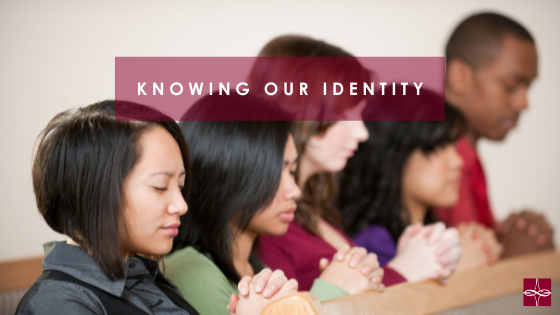

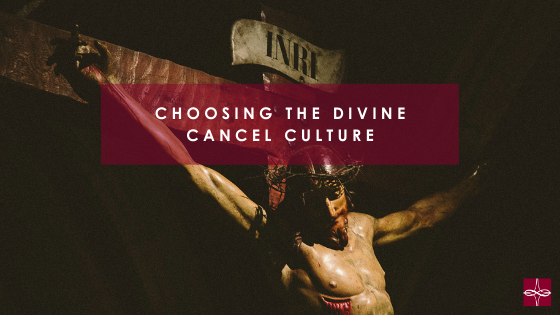
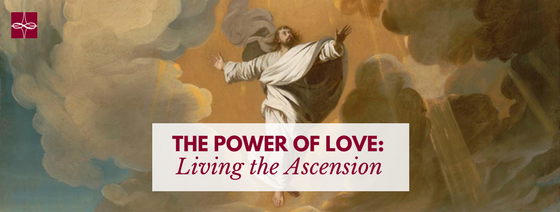

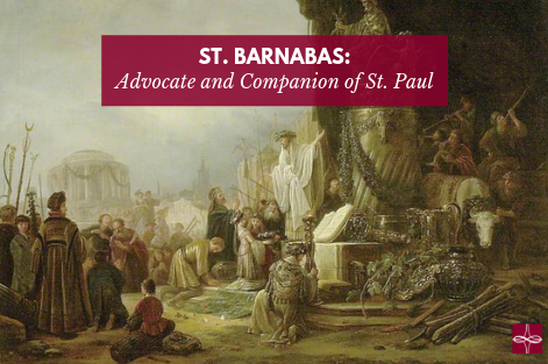

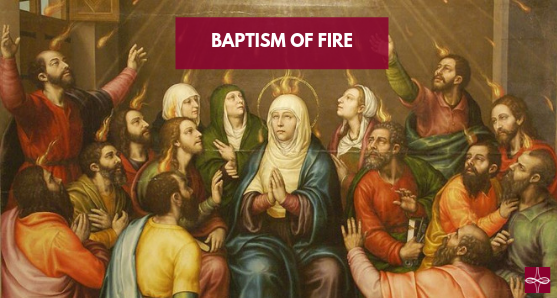

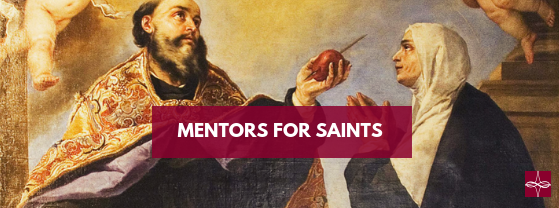

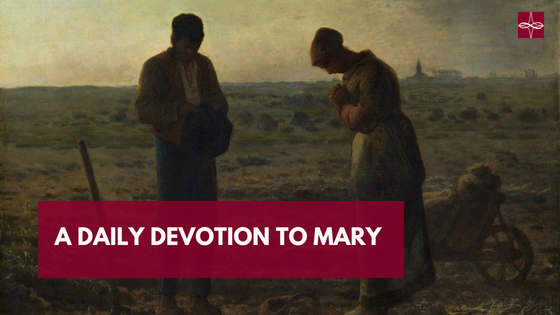
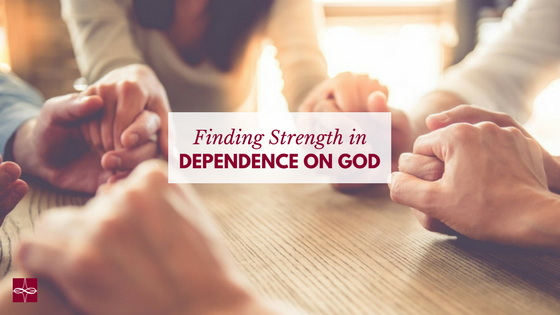

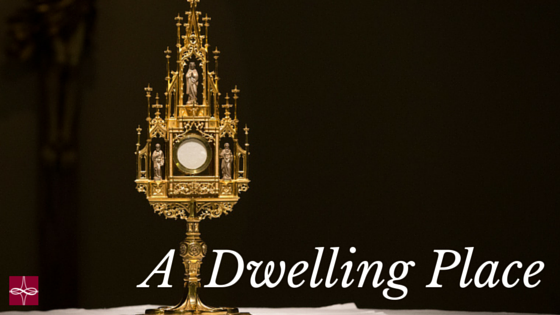
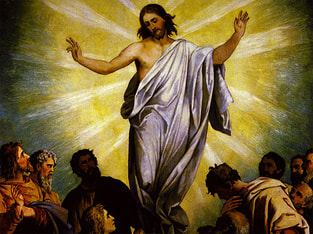
 RSS Feed
RSS Feed